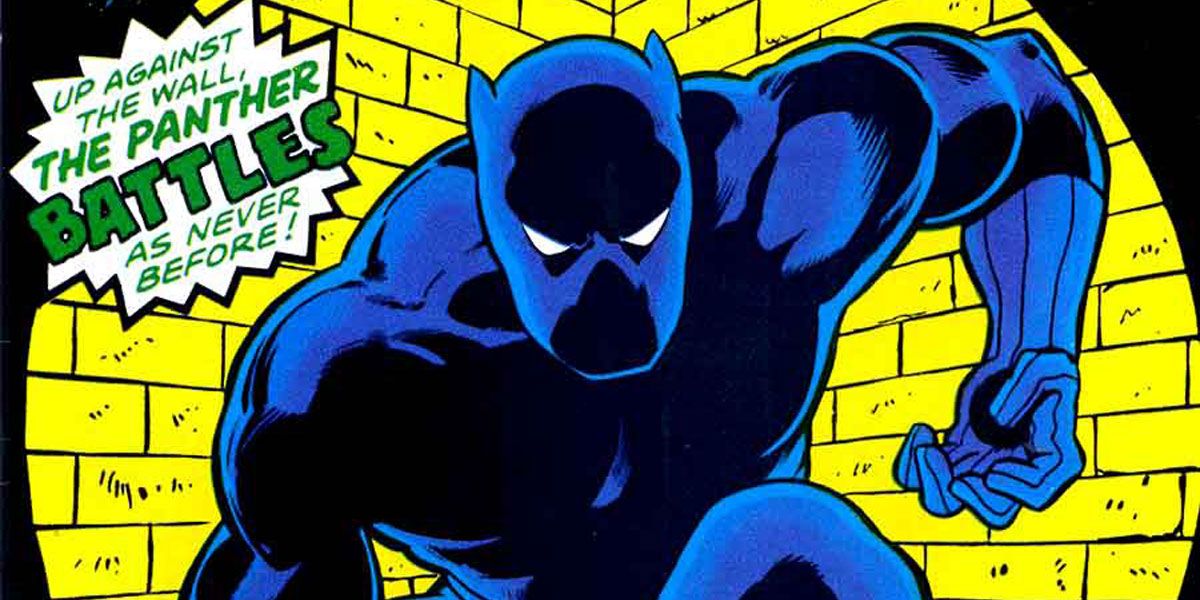It's Friday at New York Comic Con, and Marvel Comics celebrated the 50th anniversary of Black Panther -- who first appeared in 1966's "Fantastic Four" #52 by Stan Lee and Jack Kirby -- with a retrospective panel including current "Black Panther" creative team Ta-Nehisi Coates & Brian Stelfreeze, former "Black Panther" writer Christopher Priest, veteran "Black Panther" writer Don McGregor, rapper/comic book writer Darryl McDaniels, Marvel Editor-in-Chief Axel Alonso and James Monroe Iglehart, currently starring on Braodway's "Aladdin" as the Genie. "Nightling" co-anchor Byron Pitts moderated the panel.
At the beginning of the panel, each speaker was asked for thoughts on what Black Panther meant to them. Iglehart said he was attracted to a character that reflected him. McDaniels said it was "shocking" as a kid for him to see a superhero who was Black, plus rich and smart.
"I loved the Black Panther as a kid, and I only saw him in costume, and I was mildly disappointed to see he wasn't Mexican," Alonso said, to laughs, adding that he thinks that says something about the universal nature of the character.
"Joe Quesada and Jimmy Palmiotti had a unique concept for how they wanted to do Black Panther, and it appealed to me," Priest said, speaking of his days writing the Marvel Knights series. "As a kid, I always admired Black Panther, I always liked Black Panther."
"I was a comic book fan in the late '80s, early '90s, and at that point [Black Panther] didn't have his own book," Coates said, adding that he admired the dramatic tension between Black Panther being both a superhero and a king. "The opportunity to play with a character with that sort of tension, and venture off to this imaginary world where -- just as a side note -- all the people are black, who could want more than that?"
McGregor said in the '70s, he was given a mandate not to have Black villains on comic book covers. "Nobody wanted to be thought of as racist. At the same time, there were very much limits to what you can do," the writer shared. McGregor then discussed introducing a Ku Klux Klan storyline. "They came at me every issue -- where's the white people, where's the white people?" Then he said he received some negative editorial feedback on the story for being too political. "I said, 'For two and a half years, you people have been bugging me for white people. There's nothing I can do to please you people!"
"Black Panther: World of Wakanda" artist Alitha E. Martinez joined the panel.
The panel talked the lack of representation in comics editorial and creators up until now. "There's never been a Black man regularly assigned to Superman," Priest said. "I'm the first Black man, to my knowledge, to write Wonder Woman. Now we're seeing younger generations who are not hung up on black or white or gay or straight." Priest called Black Panther "a fundamentally unique character who happens to be African."
"America has deep problems with racism, it stands to logic that would affect the entertainment industry also," Coates said. "When I was a kid, you're looking for yourself on TV, you're looking for yourself in movies." Coates said that's why he was drawn to hip-hop, but second to that was comic books -- specifically in the "Secret Wars" era, where James Rhodes was Iron Man, and Storm was the leader of the X-Men -- as that was a place he could see Black heroes.
"I started doing comic books in 1988, but I've only been a 'Black artist' for about eight years," Stelfreeze said, adding that editors would meet him at conventions and say, "holy crap, you're Black." "I got hired based on my work, not on me. With the Internet, now people are seeing us, and people are going, 'Oh, wait a minute. That guy's Black. This guy's Hispanic. They're actually associating that. For some people, having that role model is what they need. They go, 'That guy's doing it. That woman's doing it. I'm going to do it."
Turning to audience Q&A, Coates was asked about the creation of Ayo and Aneka. "One of the things I really try to do with Ayo and Aneka, and Brian and I talked a lot about this, you try and accept the weight of what you're doing," Coates said, specifically in avoiding appealing to the male gaze. "They're plenty sexy, but not for me -- for each other. Brian just did a masterful job."
Martinez expressed her excitement of "being included in this conversation for real. "I'm finally drawing a book where ladies are the lead, and they're about being in the lead," she said. "I haven't drawn Black Panther in any of these pages -- can't wait to get to him, though."
A fan asked about the importance of having Black writers writing Black characters. "It's very important, we've been working on it for a while," Alonso said. "A number of African-American characters are working [at Marvel]. It's not enough. It's going to get better. This is not a PC push, it's not about quotas. What I think is important is that our comic books reflect the world around us."
At the close of the session, the panelists shared final thoughts on the character. "Comic books always show me something that exists in the real world," McDaniels said. "Looking at Black Panther, his kingdom and the people around him, I just realized something today. Chuck D of Public Enemy is the Black Panther. The intersection of comics and hip-hop is something that's really real."
Speaking of illustrating "Black Panther," Stelfreeze said, "I'm at a position where I have to create new dreams. I'm knocking them down left and right."

